This step by step diy woodworking project is about 10x12 pergola plans. I have designed this pergola so you can build a nice shaded area for relaxing evenings in your own garden. This pergola is easy to build and it features a sturdy structure. Remember that you need to read the local building codes before starting the construction, so you comply with the legal requirements. You can add your personal touch by choosing the rafter ends design, as well as the spacing of the top slats.
I recommend you to invest in the best materials you could afford. Therefore, you should buy weather-resistant lumber, such as pine or cedar. Always take accurate measurements before adjusting the size of the components at the proper size. Drill pilot holes trough the components before inserting the wood screws, to prevent the wood from splitting. See all my Premium Plans HERE.
Made from this plan
10×12 Pergola Plans – Step by Step
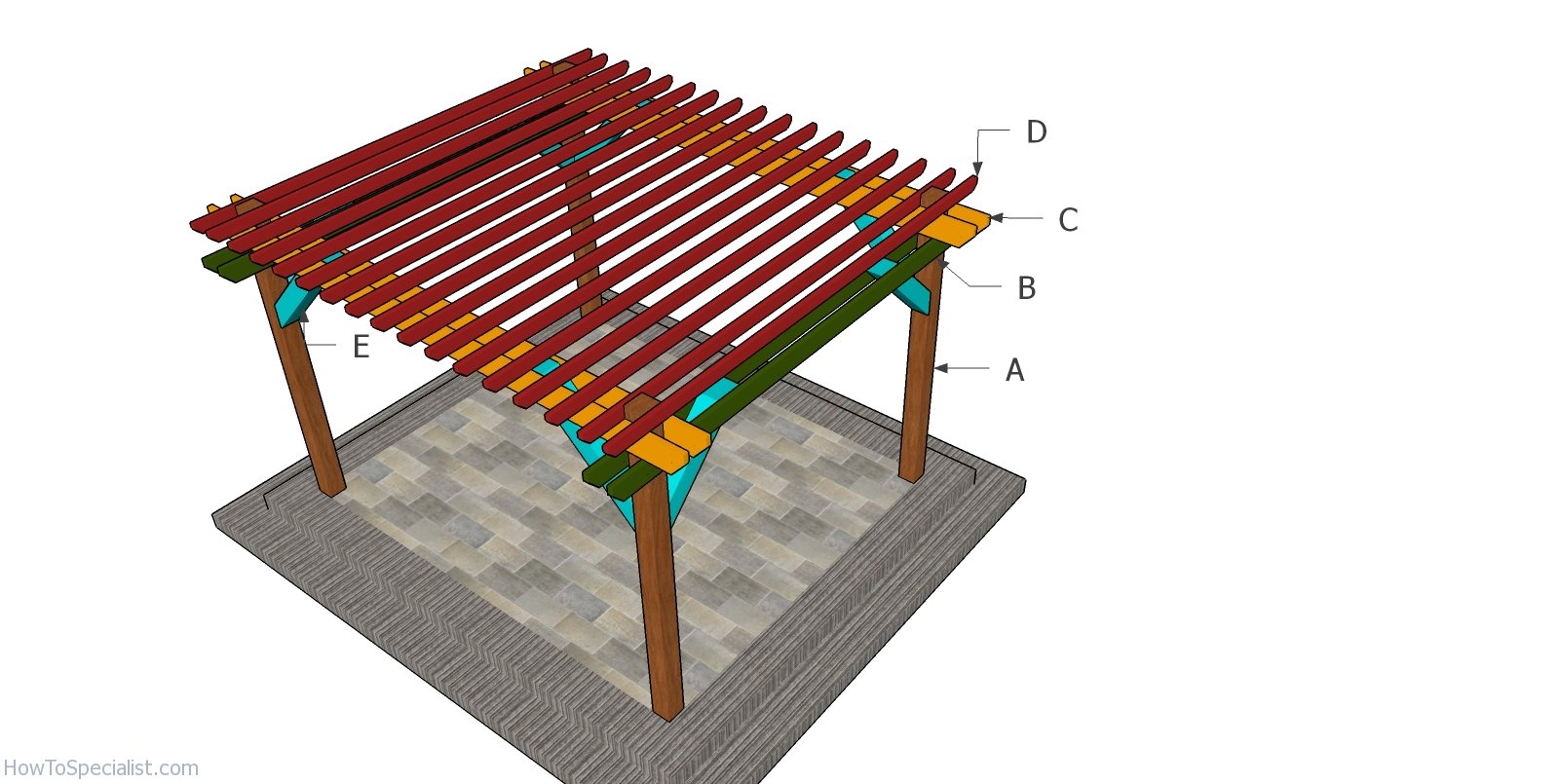
Building a pergola
Materials
- A – 4 pieces of 6×6 lumber – 8′ long POSTS
- B – 4 piece of 2×6 lumber – 12′ long SUPPORT BEAMS
- C – 4 pieces of 2×8 lumber – 14′ long SHADE ELEMENTS
- D – 17 pieces of 2×4 lumber – 12′ long TOP SLATS
- E – 4 pieces of 6×6 lumber – 45 1/2″ long, 4 pieces – 36 1/4″ long BRACES
- 8 pieces of 6×6 lumber – 8 ft
- 17 pieces of 2×4 lumber – 12 ft
- 4 pieces of 2×6 lumber – 12 ft
- 4 pieces of 2×8 lumber – 14 ft
- 1 5/8″ screws
- 2 1/2″ screws
- 5 1/2″ screws
- 6×6 post anchor
- post to beam connectors
- tube form
- rafter ties
- 16 pieces of 9″ carriage bolts
- wood filler , wood glue, stain/paint
Tools
- Safety gloves, glasses
- Miter saw, jigsaw
- Chalk line, tape measure, spirit level, carpentry pencil
- Drill machinery and drill bits
Time
- One Week
How to build a 10×12 pergola
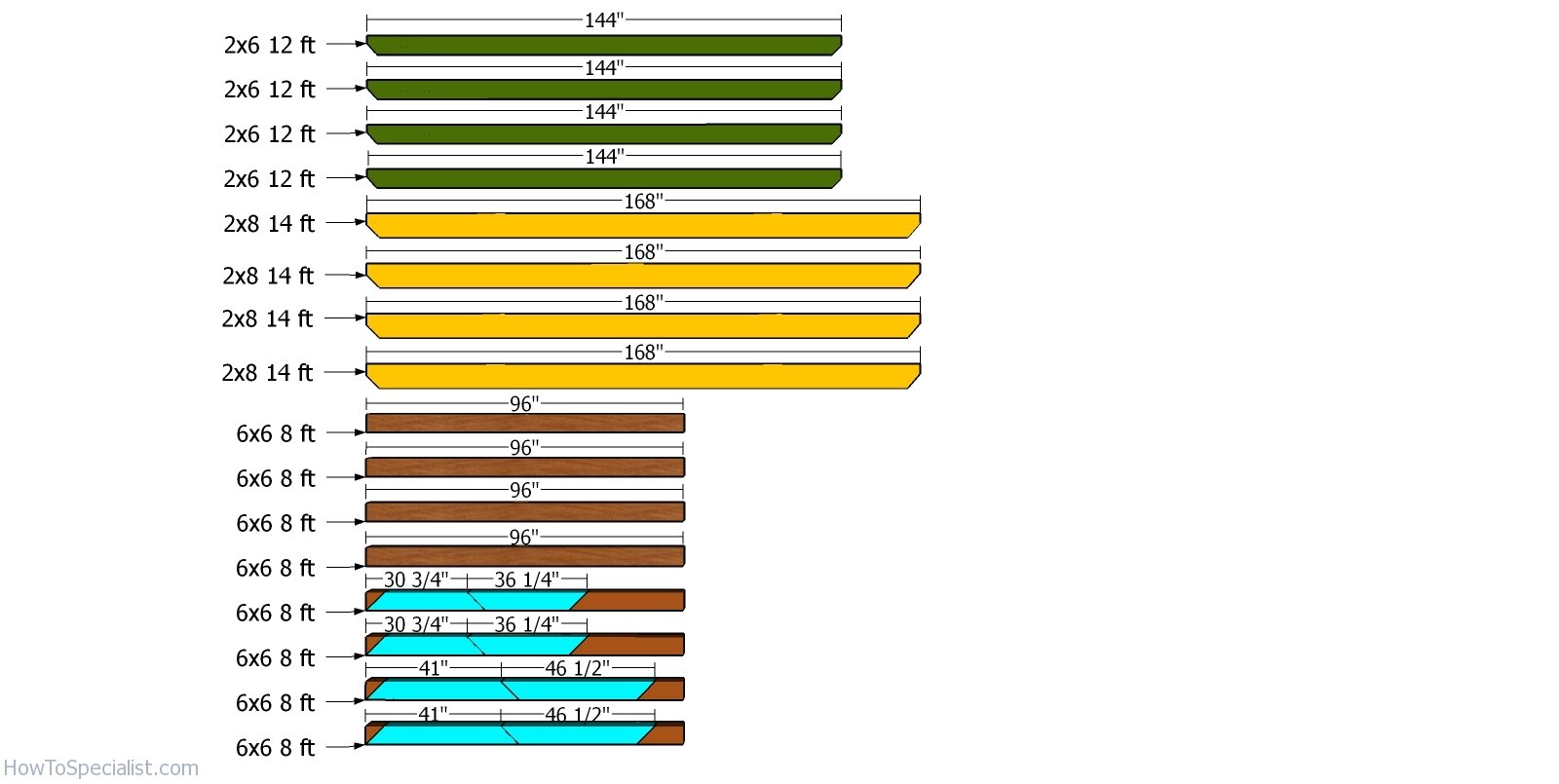
Cut list 1
First of all, you need to cut the components for the pergola. Make sure you measure twice and cut once. Mark the cut lines and get the job done with a miter saw.
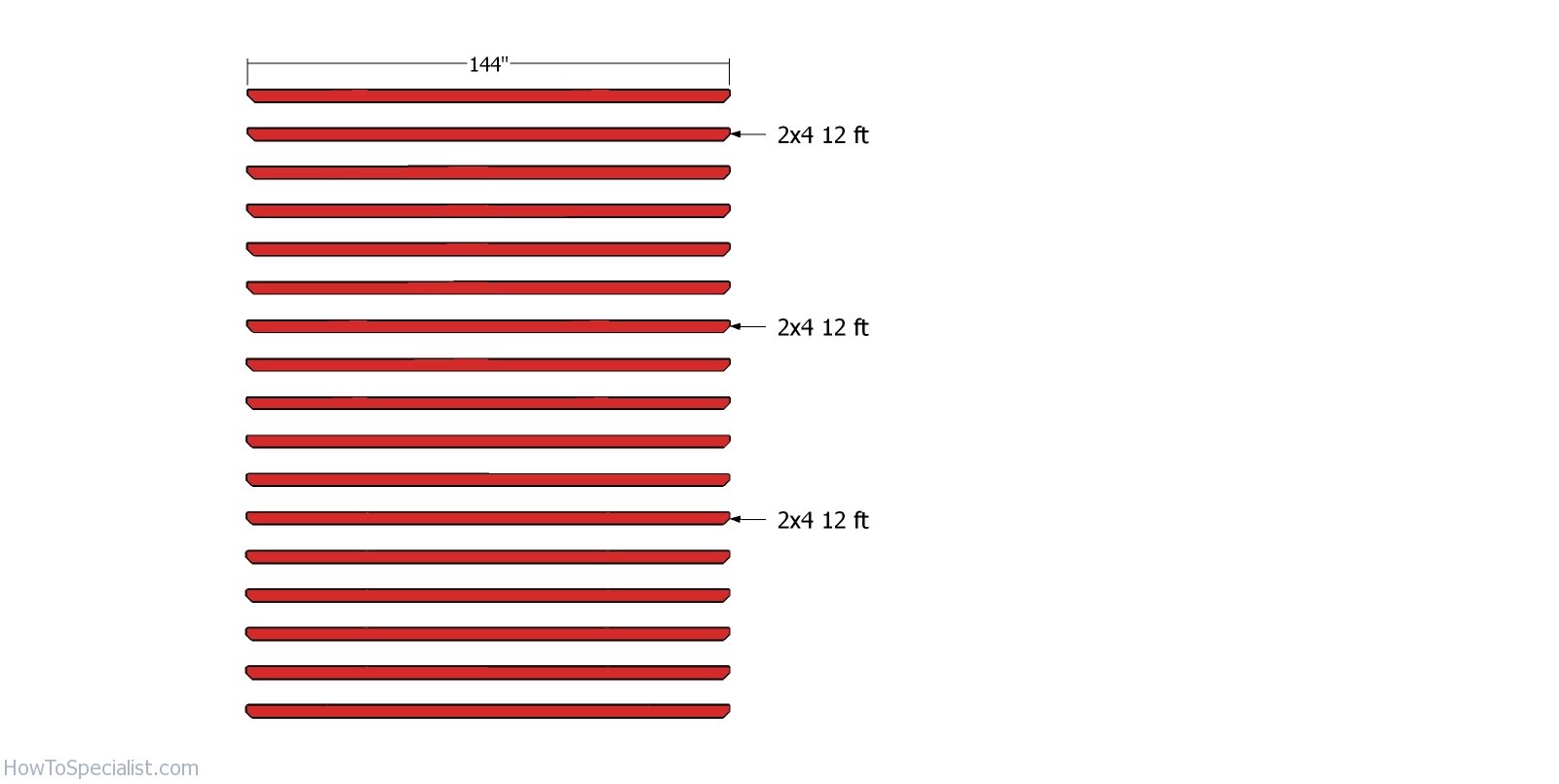
Cut list 2
Cut the rest of the components, as shown in the diagram.
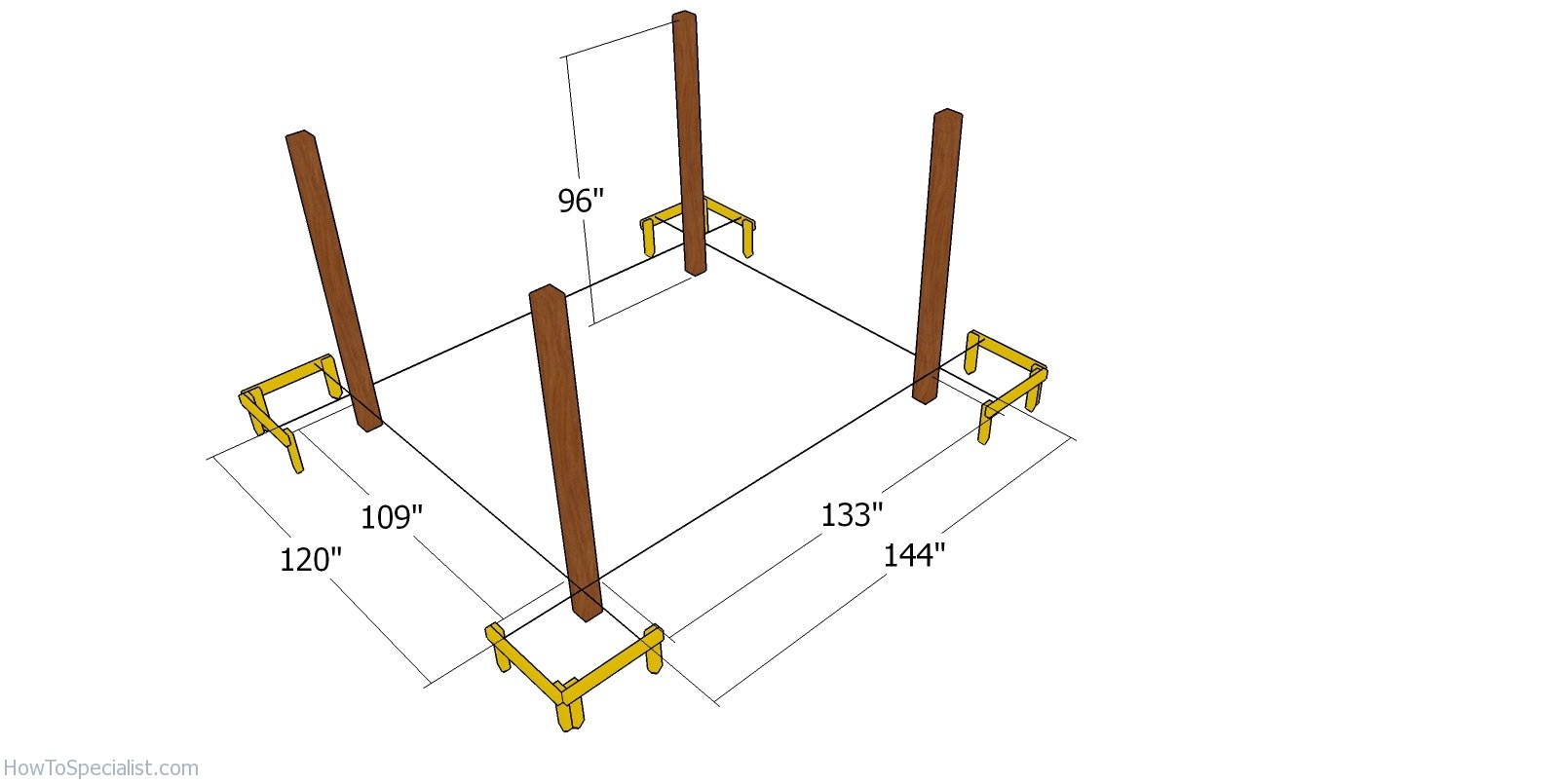
Fitting the posts
Next, you need to layout the garden pergola. Therefore, use string and batter boards to lay out the location of the posts. Measure the diagonals and make adjustments till they are equal. Moreover, you need to apply the 3-4-5 rule to each of the four corners, so you make sure they are right angled.

Fitting the posts
You can set the 6×6 posts in concrete or you can pour footings and secure them in place with anchors. Dig 2-3′ deep holes and 14″ in diameter and then compact a layer of gravel to the bottom. Fit the 12″ tubes and set the 6×6 posts into place (or fit the anchors). Use a spirit level to plumb the posts and then secure them into place with temporarily braces. Pour the concrete in the tube forms and let it dry out for several days.
Remember that in my case, the plans are designed considering you will lock the posts using anchors. If you plan to lock the posts in concrete, just add 3′ to all the posts.
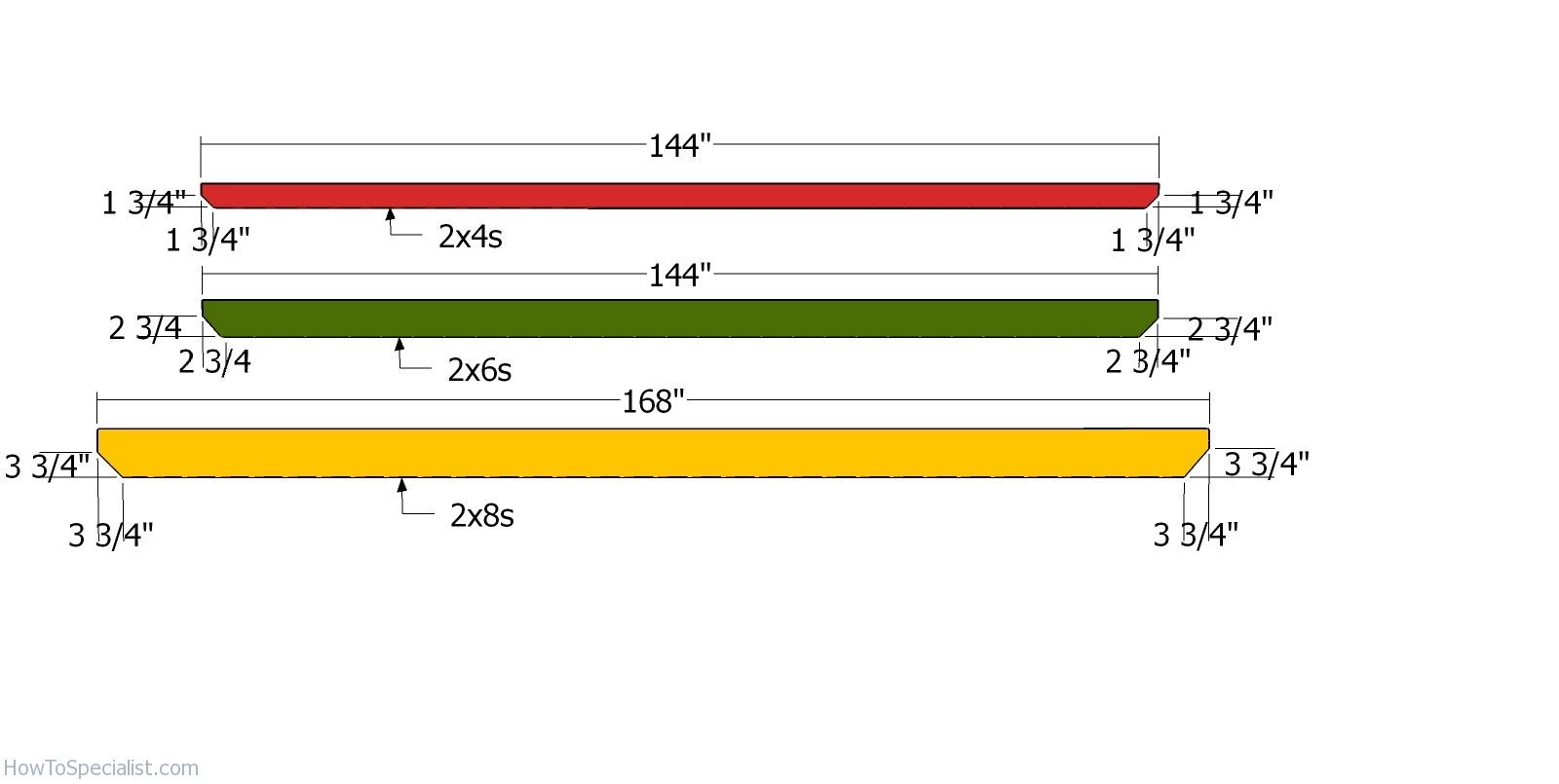
Components
Cut the support beams and the shade elements using the info from the diagram. Mark the cut lines to the beams and get the job done with a circular saw. Smooth the edges with sandpaper. You should notice that the components are made from different materials.
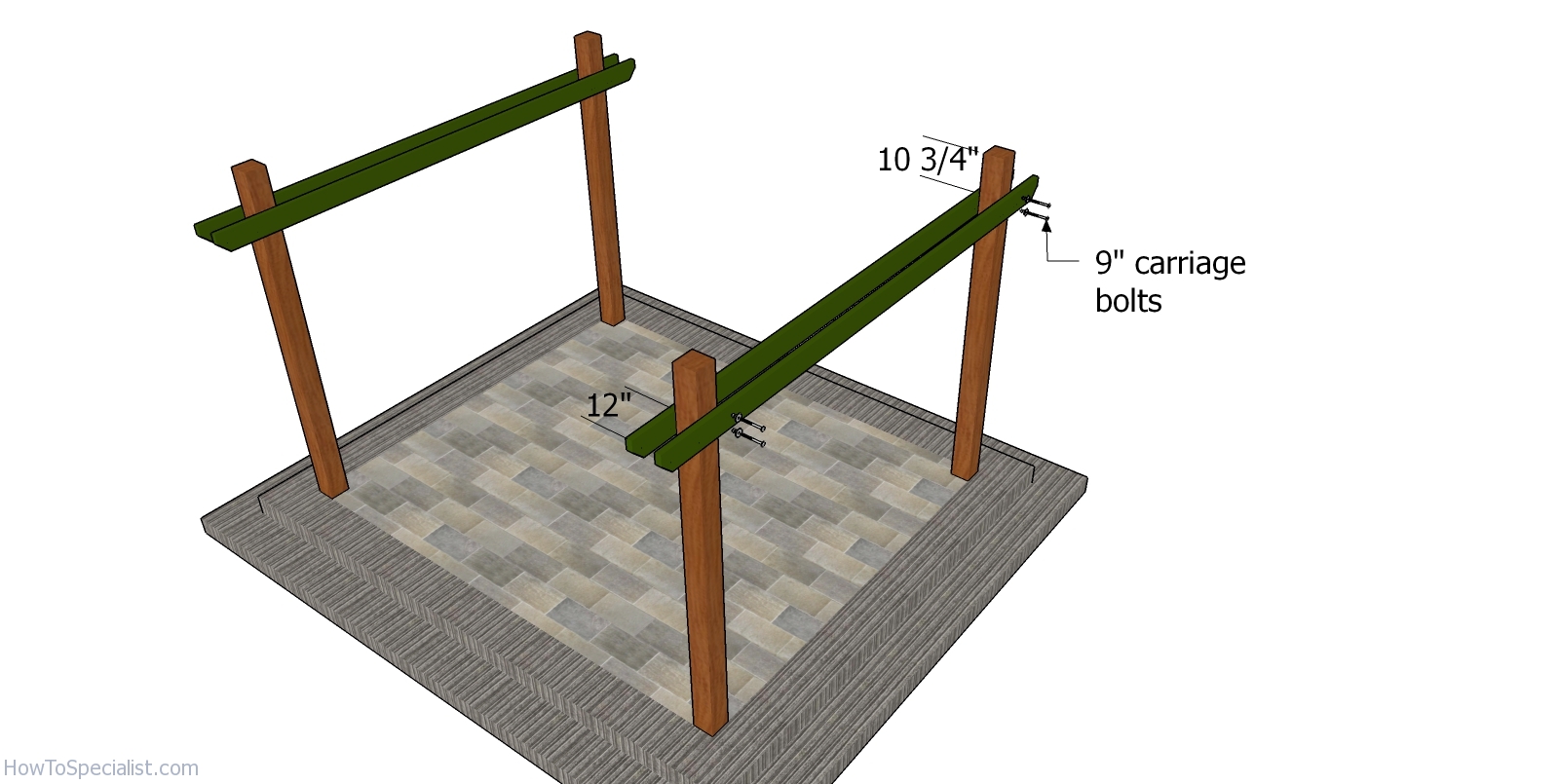
Base beams – 10×12 pergola
Align the support beams to the posts then clamp them into place tightly. Use a spirit level to plumb the posts and to check if the beams are perfectly horizontal. Drill pilot holes through the 6×6 posts and through the beams. Insert 9″ carriage bolts (two for each joint) and lock everything tightly. Make sure the beams are horizontal and check if the corners are square.
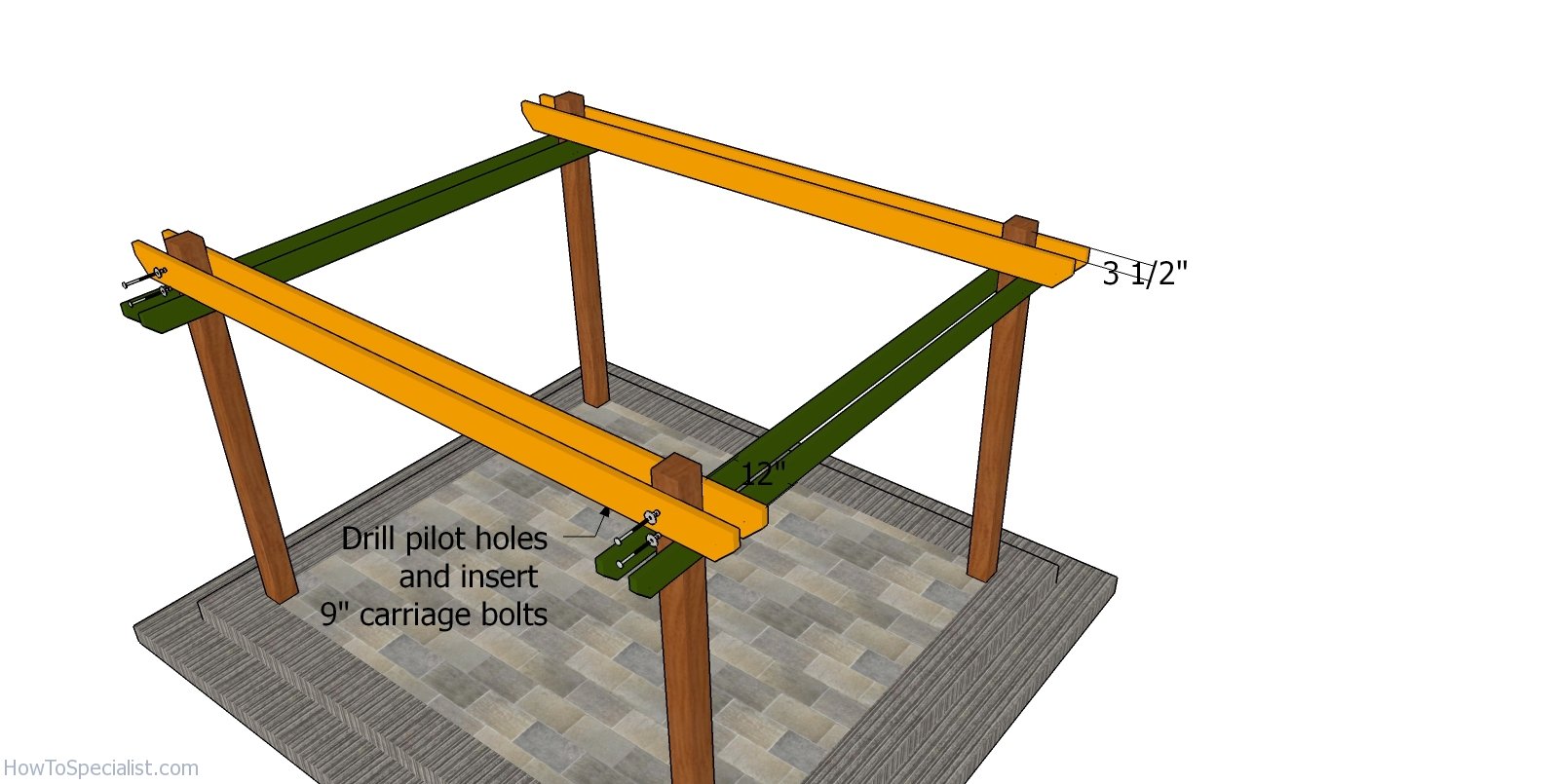
Fitting the support beams
The next step of the project is to build the 2×8 beams to the pergola, as shown in the diagram. Leave 12″ overhangs on both ends of the beams. Clamp the beams to the posts, drill pilot holes and insert 9″ carriage bolts.
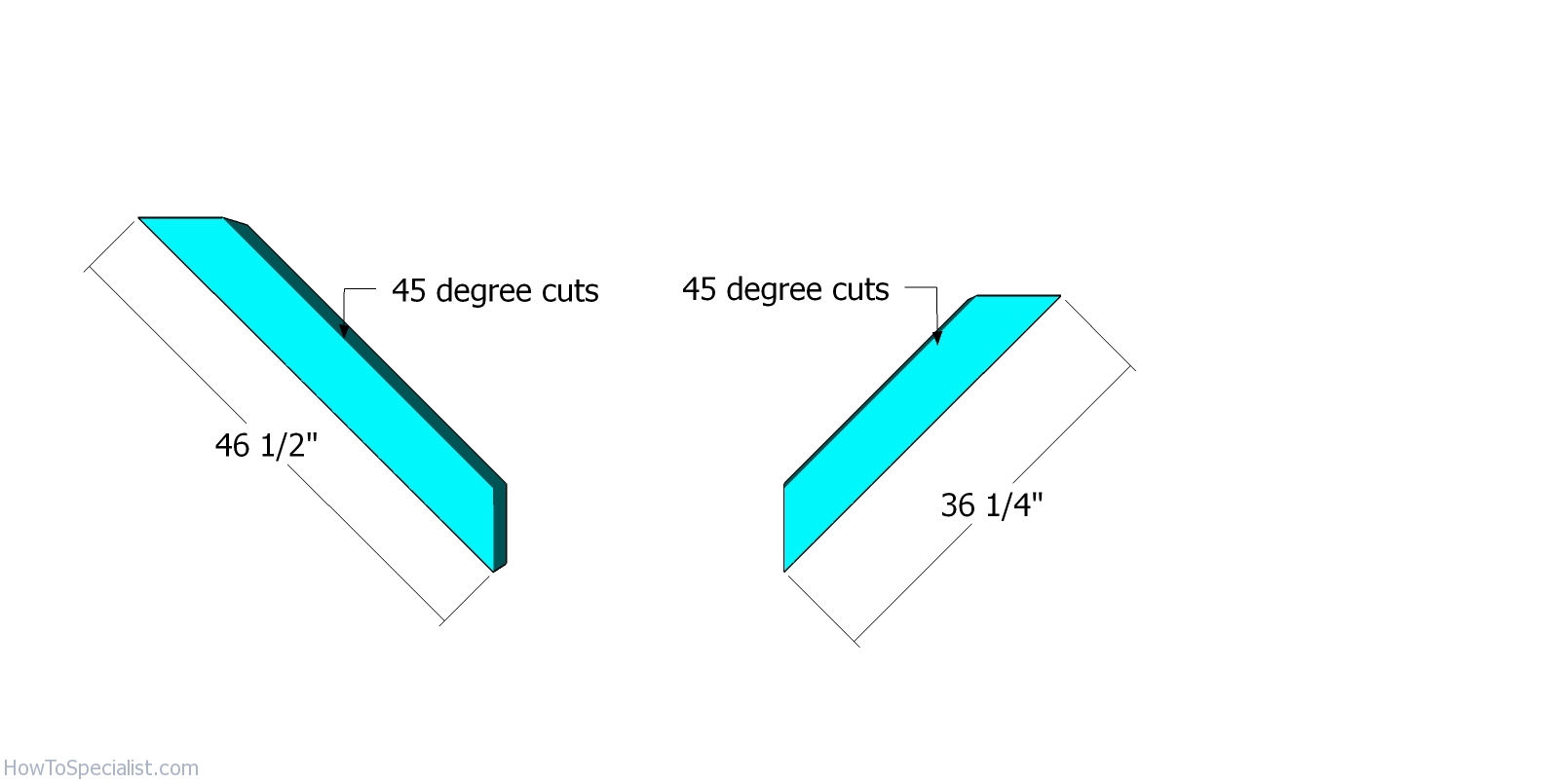
Braces
Use 6×6 lumber for the diagonal braces. Use a miter saw to make 45 degree cuts to both ends of the braces.
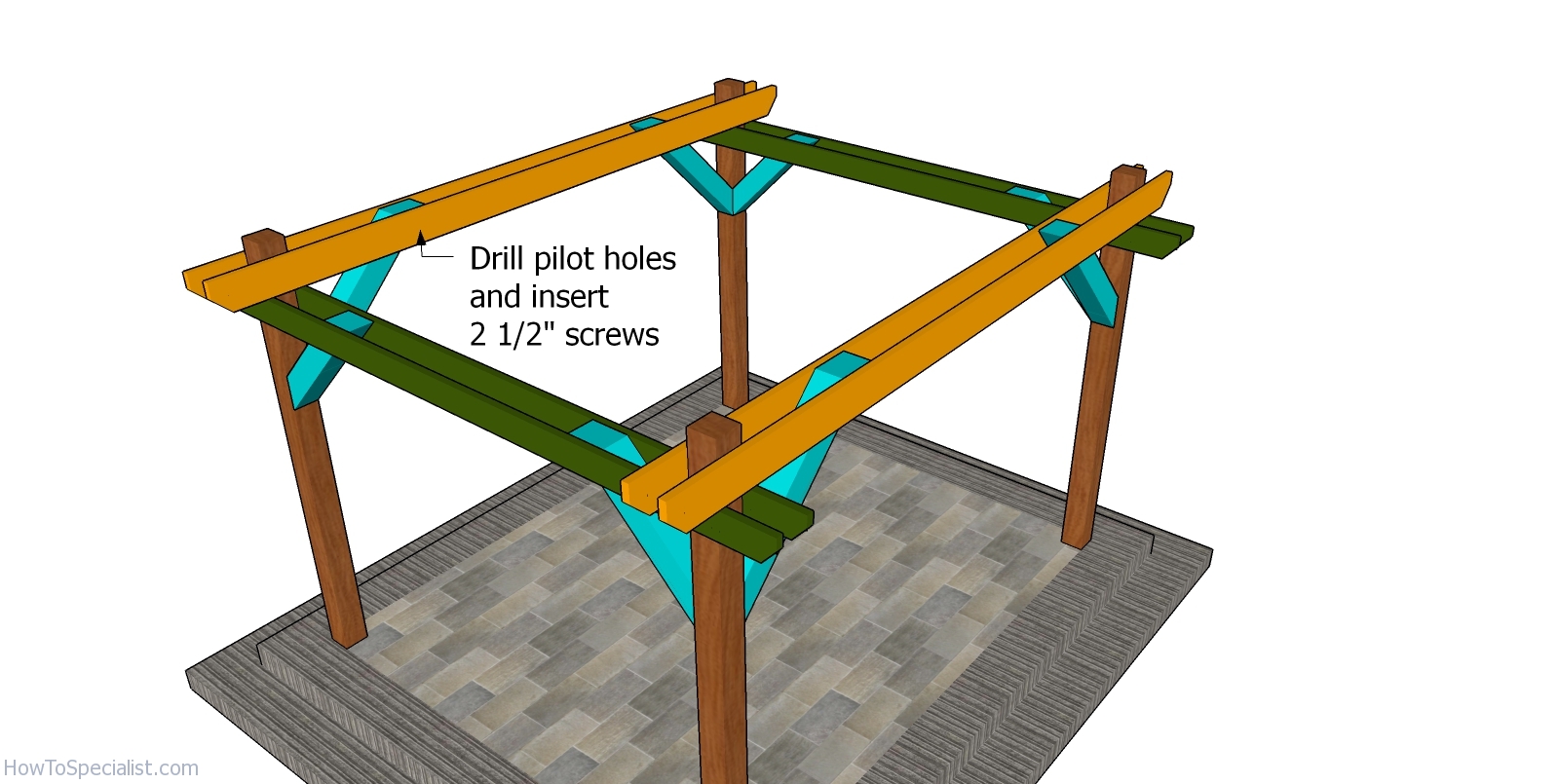
Fitting the diagonal braces
Fit the braces to the pergola, as shown in the diagram. Drill pilot holes through the beams and insert 2 1/2″ screws to lock them into place. Drill pilot holes through the braces and insert 5 1/2″ screws into the posts. Before setting the braces, plumb the posts with a spirit level.
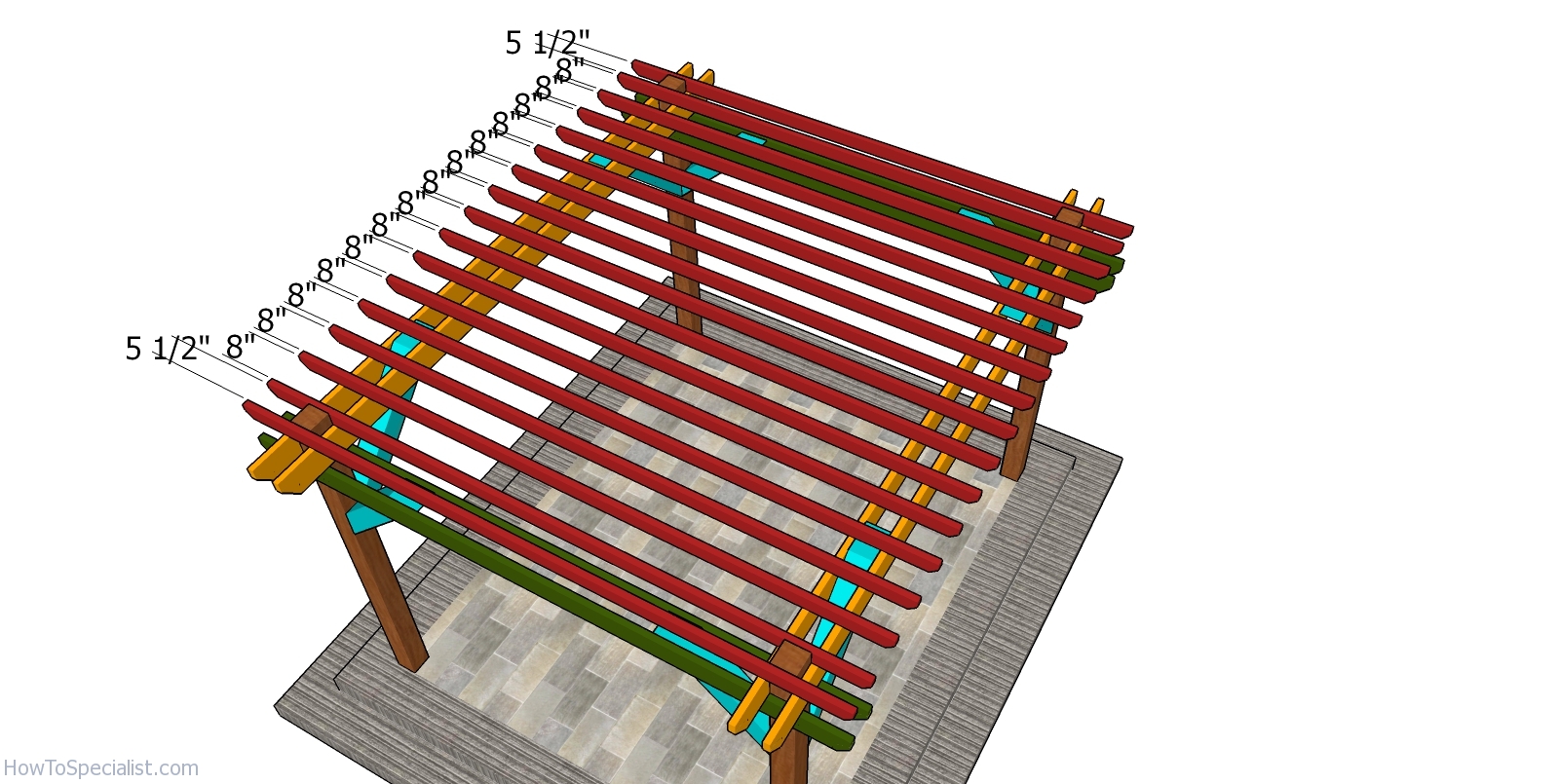
Fitting the rafters
Fit the shade elements to the top of the square pergola and place them equally spaced. Drill pilot holes and insert screws to lock them tightly to the support beams. Alternatively, you should use rafter ties to lock the components together tightly. You can adjust the size between the shade elements, so you let more or less light to the covered area.
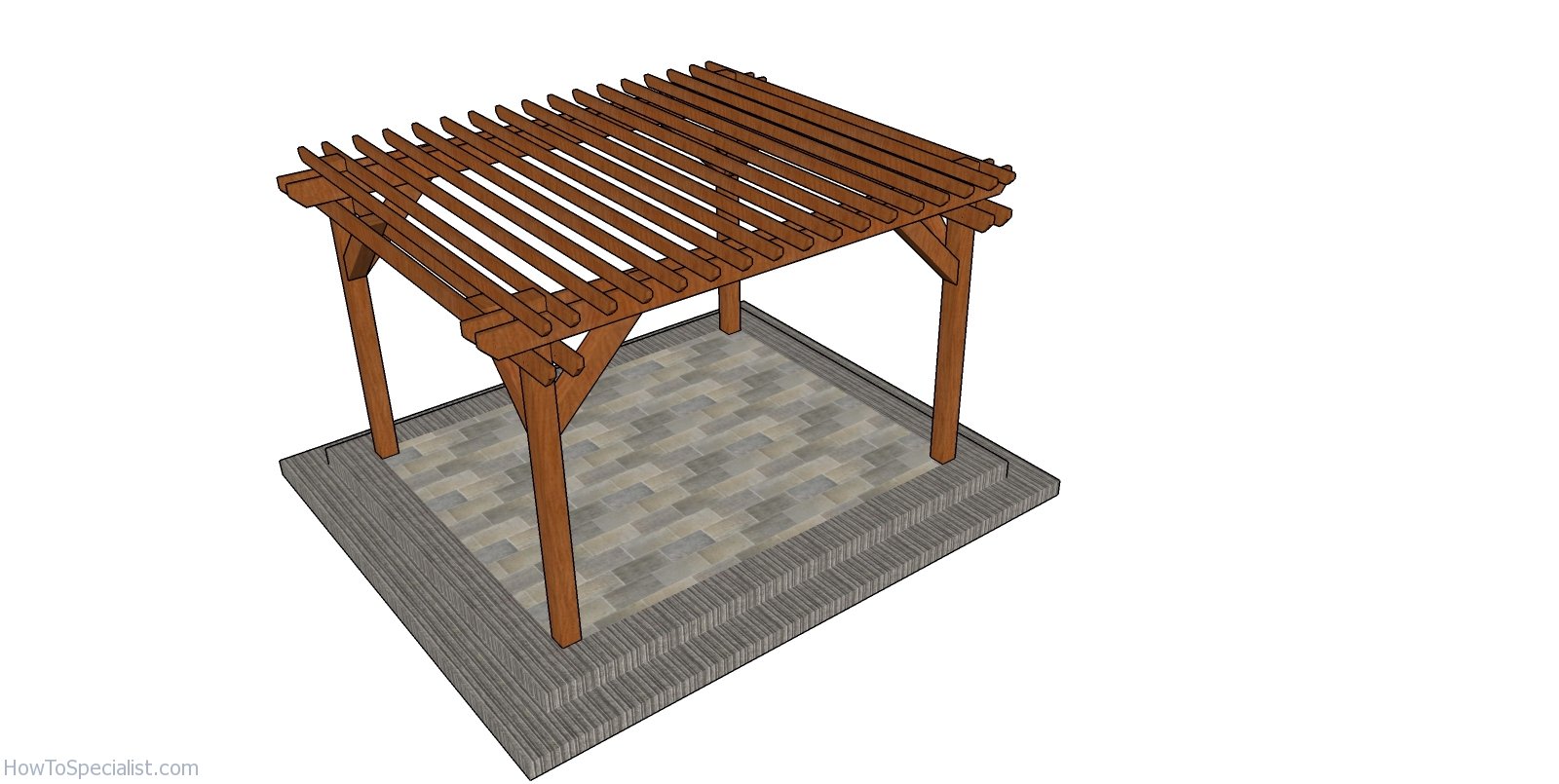
10×12 Pergola Plans
This pergola has the perfect size if you only want shade for a table and a few chairs. In addition, this rectangular garden pergola will be budget friendly and sturdy, due to the corner braces. This pergola makes for the perfect support for climbing plants.
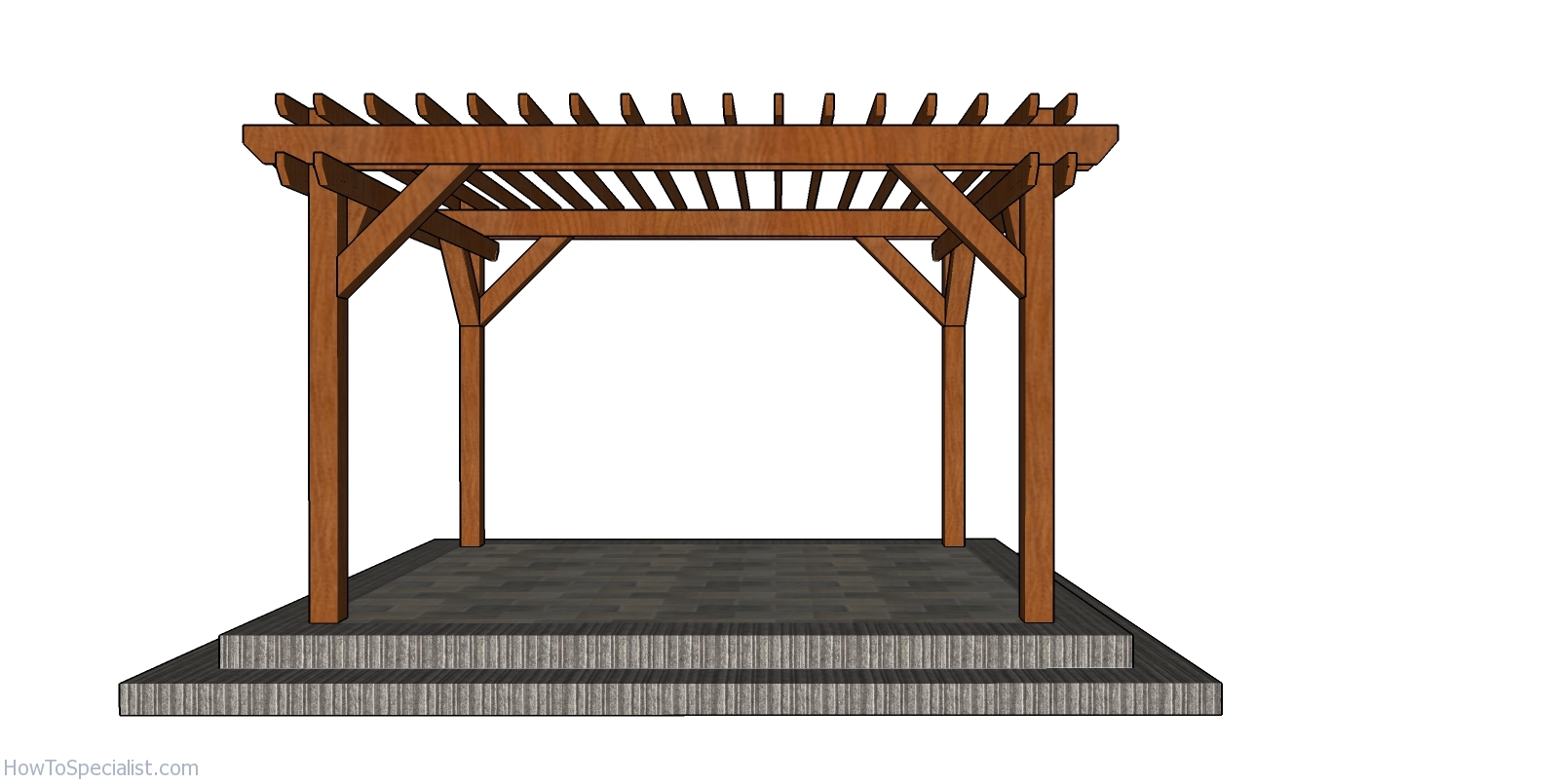
10×12 Pergola Plans – side view
Last but not least, you need to take care of the finishing touches. Fill the holes with wood putty and then smooth the surface with sandpaper. Apply a few coats of paint or stain to enhance the look of the components and to protect them from the elements.
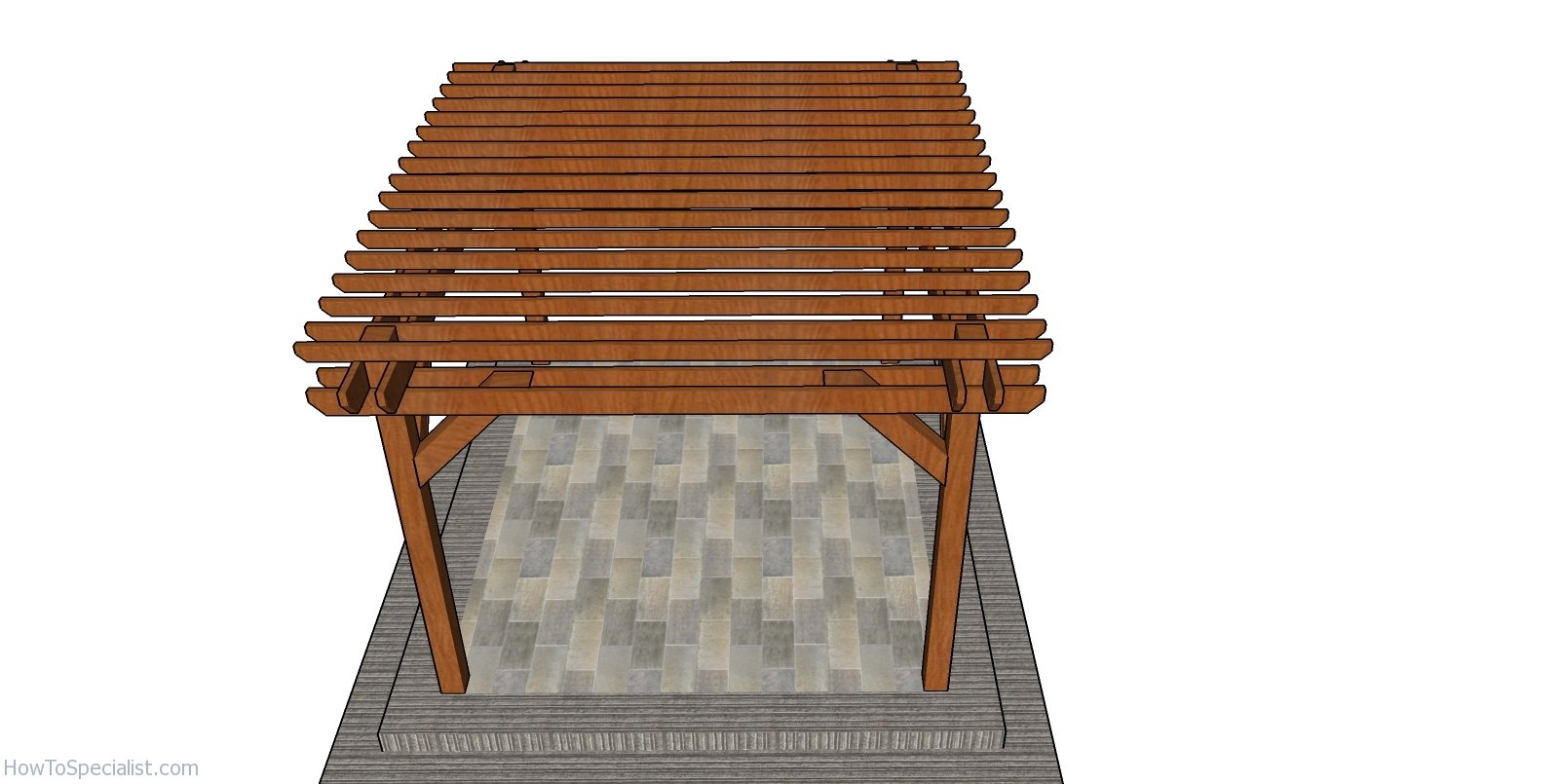
How to build a 10×12 pergola
This 10×12 pergola is large enough for creating a really nice relaxation area in the backyard. With so much space you can fit a table, a few chairs and even a sofa. If you like my project, don’t forget to SHARE it on Facebook and Pinterest. See my other pergola plans, as well, for more building inspiration.
Thank you for reading our project about free 10×12 pergola plans and I recommend you to check out the rest of the projects. Don’t forget to LIKE and SHARE our projects with your friends, by using the social media widgets. SUBSCRIBE to be the first that gets our latest projects.


1 comment
How would you suggest adding a porch swing to the pergola? I built a pergola using this plan set as a guide with a 6×11 foot print. I planning to hang the swing from the 11 foot span on the backside of the pergola. Would you have any tips on hardware to use for hanging the swing? Would eye bolts or eye screws in the 2×8 be sufficient?